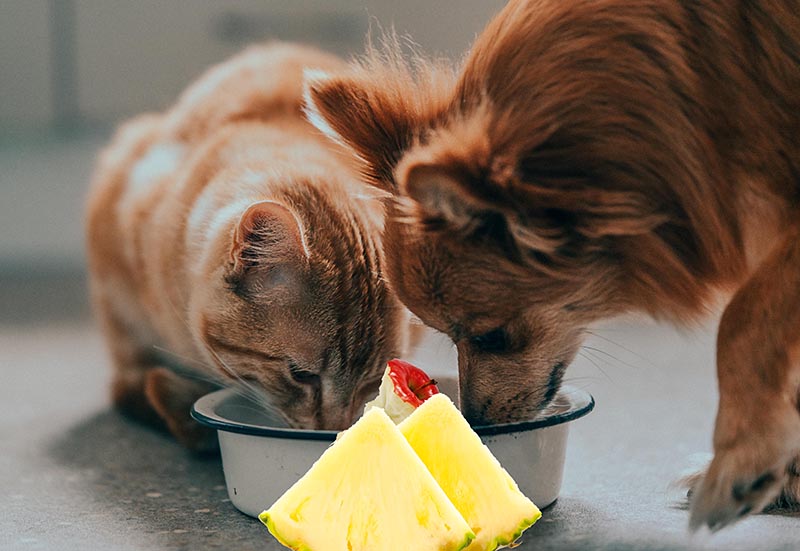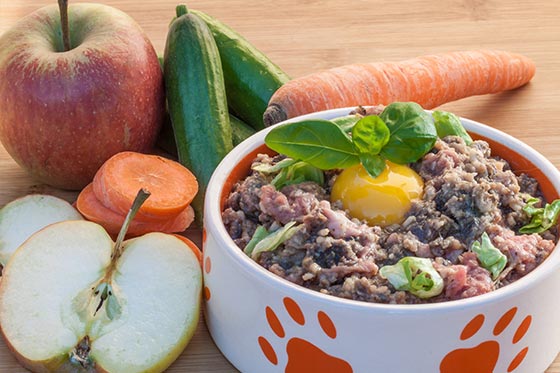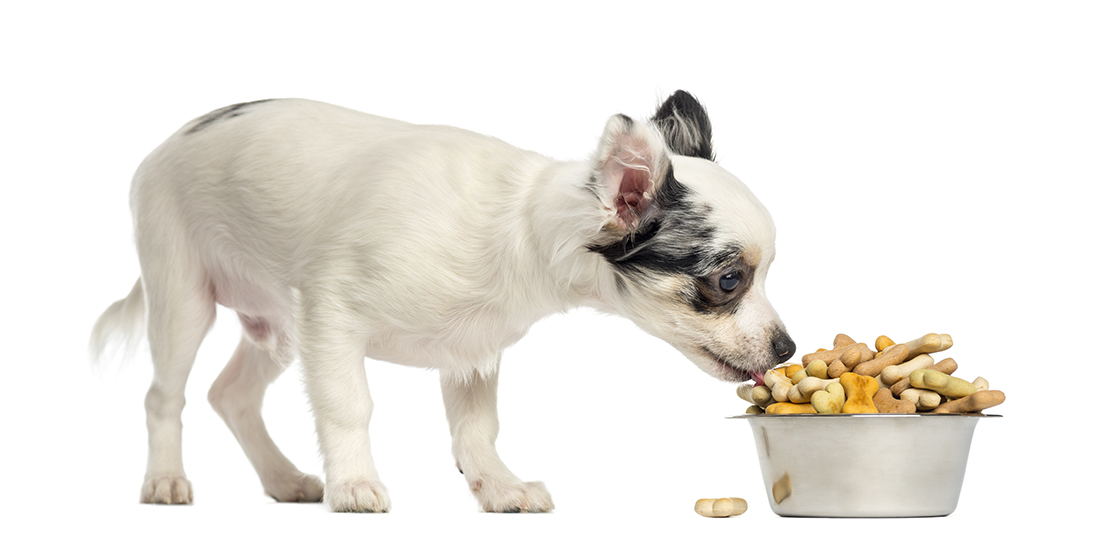
Can I Feed my Dog or Cat Fruit?
Fruit is an excellent addition to your pet’s diet. Raw fruit contains high levels of enzymes and anti-oxidants and is

We are our pet’s guardians, so as responsible pet parents it is up to us to provide our dogs and cats with a diet that is nutritionally healthy, balanced and sustainable for the long term.
Dogs and cats do require a balanced diet, but it would be quite unrealistic to consider every meal to be as completely balanced as the next. The internal digestive organs of dogs and cats have not changed or evolved from their wild ancestors, so it stands to reason that when they feed, they would digest their meal and absorb the nutrients they require in the same way that they have always done.
As an example, in a wild dog pack, a dog may only have access to the bony carcass from a kill and nothing else. The next time, that dog may eat only flesh, and from the next meal it may have access to only internal organs. All these meals would inevitably make up a varied, balanced diet, though not all in one meal or all at the same time … as nature intended.
This example may help to explain and give insight into the harmful effects of feeding the same bowl of kibble, with the same ingredients, day in and day out, attributing to the risk of excessive nutrients being absorbed from any one specific food variant. This means that if there is more of one ingredient or excess of one ingredient – added calcium for example – then this could be regarded as ‘dangerous levels of any one type of ingredient to absorb’. However, this is a topic for further discussion all on it’s own
Raw meat alone has enormous health benefits for pets. lt supplies high quality protein, including essential amino acids (especially lysine and methionine) and is extremely digestible (beei containing the highest levels of protein), Numerous minerals and vitamins are embedded in this protein. Meat also supplies varying levels of fat, containing essential fatty acids (EFA’s), which are critical for good health. Embedded in the fat are fat-soluble vitamins.
lf meat is cooked, the heat damages the essential amino acids, decreases the digestibility of the protein and destroys the digestive enzymes. lt should be noted that dogs and cats rely on the naturally occurring enzymes present in raw food to aid their digestive process. Enzymes can be lost from the animal’s body through sickness, pregnancy, urine, faeces, slress and the effects of extreme weather conditions. Unless you replace these using raw foods, your pet’s immune system and other systems will be compromised.
Research indicates that most animals, including our canines, have digestive organs that allow the enzymes in raw food time to act before utilising the body’s own digestive enzymes. This pre-digestion plays a major role in the overall digestive process and the absorption of nutrients. lf it is not functioning correctly, food may pass through the system without the full benefit of the proteins and vitamins, and your pet’s health may suffer as a result.
Raw meaty bones also have substantial health benefits. They provide an important source of iron (embedded in the marrow), antioxidants and, again, the all-important enzymes. They also contain the correct natural balance of calcium and phosphorus. An excessive amount of calcium, for example in dry dog food, inhibits zinc from being absorbed. Zinc is essential for healthy production of skin cells and for vitamin absorption (especially B-vitamins) and plays a major part in bone growth.
Another culprit that can be found in excess in commercially processed pet food is phosphorus. Generally, phosphorus by itself does not pose too much of a problem, but if the kidneys are already damaged by, for example, excess calcium, they will not be able to properly eliminate the phosphorus and there will then be a build-up of both nutrients, and the damage to the kidneys increases.
Raw meaty bones also act as nature’s toothbrush for dogs and cats, Ripping and tearing the meat off the bone and chewing the bones promote healthy teeth and gums, and helps to prevent and remove tartar build-up and the associated bacteria growth. Most mouth infection is related to a build-up of tartar on the teeth, infected gums and tooth decay and is indicated by bad doggie breath. If left untreated, the infection can systemically spread throughout the body of dog or cat via the bloodstream and the pet could become extremely ill.
It is important to vary your pet’s diet. There is so much variation in the vitamins and minerals present in a range of raw foods, that it is essential that a variety of foods is offered to fulfill their total nutritional requirements. For a dog, this means a good serve of pureed vegetables (especially dark green, leafy veggies) along with their meaty bones and a few healthy table scraps if you have them thrown into the mix. But don’t leed them solanum family veggies – tomato, capsicum, eggplant, potatoes and chilies (not that anyone would feed chilies to a dog anyway) and
don’t feed them onion either.
This does not apply to cats, as cats are strict carnivores.
Meals should be well thought out and varied appropriately to provide your pet with balanced portions of nutritional goodness.
The wellbeing of your pet’s health and longevity is in your hands!
Article transcribed from article originally posted by Tracey Morrison in the “True Natural Health” Summer 2015 / 16
Tracey Morrison is a Homeopath, Remedial Massage Therapist, writer and animal health practitioner, having studied a wide range of natural health modalities for pets, including nutrition, diet and behaviour, over the past 15 years. She is based near the beautiful Blue Mountains west of Sydney and is passionate about
providing guidance for optimum pet health.
Contact:
tracey@proactivepets.com.au

Fruit is an excellent addition to your pet’s diet. Raw fruit contains high levels of enzymes and anti-oxidants and is

Ingredients 1 cup of sweet potato (diced & mashed) ½ cup of light cheddar cheese (grated) 1½ cups of coconut